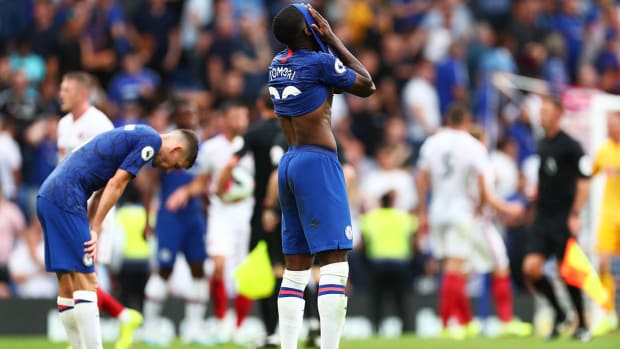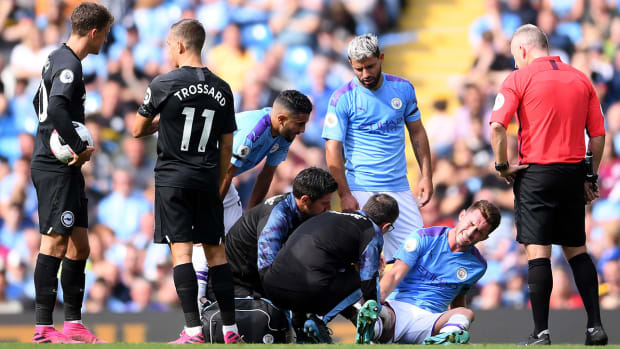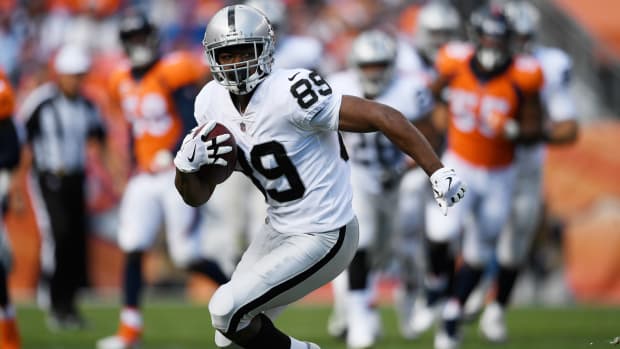Feds: Supreme Court should nix New Jersey sports betting bid
NEWARK, N.J. (AP) New Jersey's yearslong efforts to allow legal sports betting have brought more opposition from the federal government Tuesday.
Acting U.S. Solicitor General Jeffrey Wall in a brief filed Tuesday urged the U.S. Supreme Court not to hear New Jersey's appeal of a lower court decision that invalidated the state's sports betting plan.
The Supreme Court is expected to make its decision by the end of June.
The court invited the solicitor general to weigh in on the case back in January, a move then seen as potentially bolstering New Jersey's chances of having its appeal heard. The solicitor general represents the government in cases before the Supreme Court.
The Supreme Court historically agrees to hear roughly 1 percent of appeals it receives, but that number rises dramatically in cases in which the solicitor general's input is sought, said Daniel Wallach, a Miami-based sports law attorney.
On the negative side for New Jersey: The court follows the solicitor general's recommendations an overwhelming majority of the time.
This case could be different, Wallach said.
''This is not your ordinary case in which the issues are limited to a specific controversy before the court,'' he said. ''The larger issue that has been framed here is the ability of the federal government to interfere in states' decision-making when it comes to repealing state laws.''
Joseph Asher, CEO of William Hill US, which is set up to offer sport betting at Monmouth Park Racetrack if the laws change, wasn't as optimistic.
''The Supreme Court could still decide to take the case, but I think it's less than 50-50 that it will,'' Asher said Wednesday at a gambling conference in Atlantic City. ''The case is certainly not over yet, but the expectation is that chances are they won't take it.''
Attorneys for New Jersey, led by former U.S. solicitor general Ted Olsen, have argued the federal government is overstepping its authority by stopping the state from lifting its bans on sports betting.
They argue that lifting those bans doesn't amount to the state authorizing sports betting and thus doesn't run afoul of the Professional and Amateur Sports Protection Act, passed by Congress in the early 1990s.
Wall argued that a 2014 law signed by Republican Gov. Chris Christie repealing the bans and allowing sports betting at casinos and racetracks ''is no different from a positive enactment authorizing such gambling.''
The four major pro sports leagues and the NCAA sued New Jersey to stop the state from allowing sports betting. Several states, including Mississippi, West Virginia, Arizona, Louisiana and Wisconsin, have joined New Jersey's effort to have the case heard by the Supreme Court.
Christie has championed New Jersey's effort in an attempt to use sports gambling revenues to bolster the sagging fortunes of the state's casino and horse racing industries.
Legal sports gambling is allowed in Nevada and three other states that already had approved some form of wagering before the federal law went into effect. Nevada is the only state to allow single-game wagering.
Congress gave New Jersey a one-time opportunity to become the fifth state before the ban was enacted, but the state failed to pass a sports betting law in the required time window.
---
Associated Press writer Wayne Parry in Atlantic City contributed to this story.
Follow Porter at https:/www.twitter.com/DavidPorter-AP




